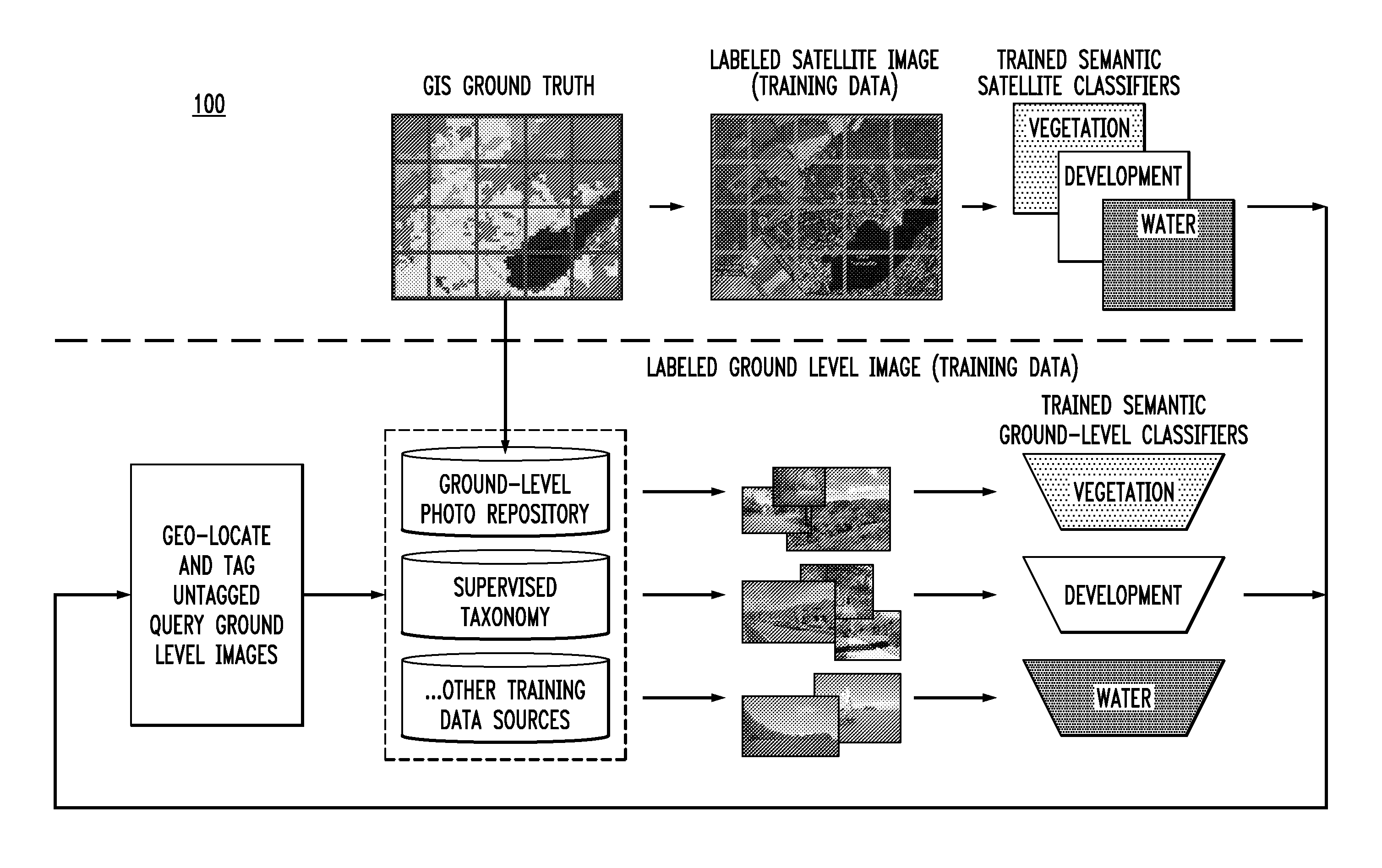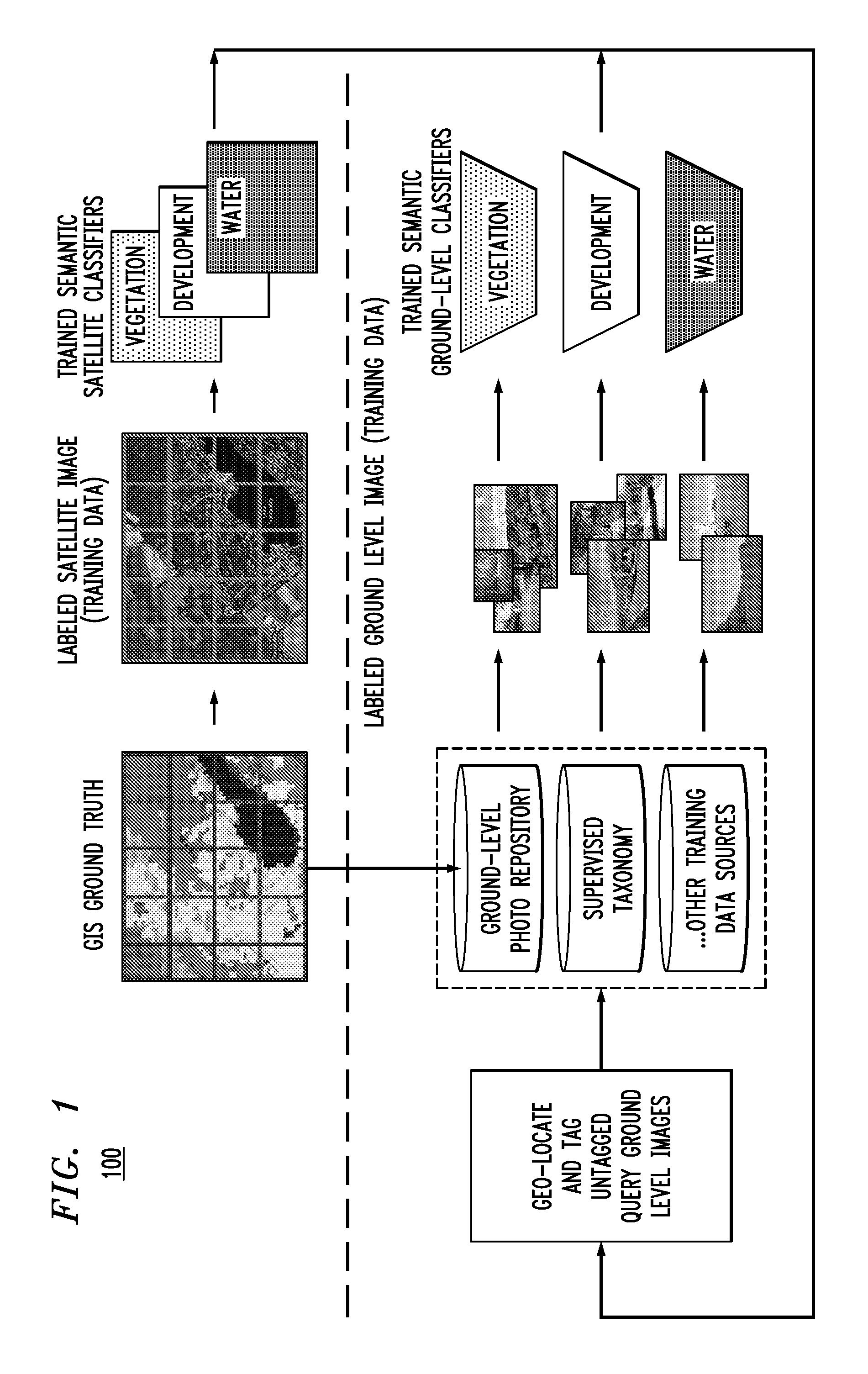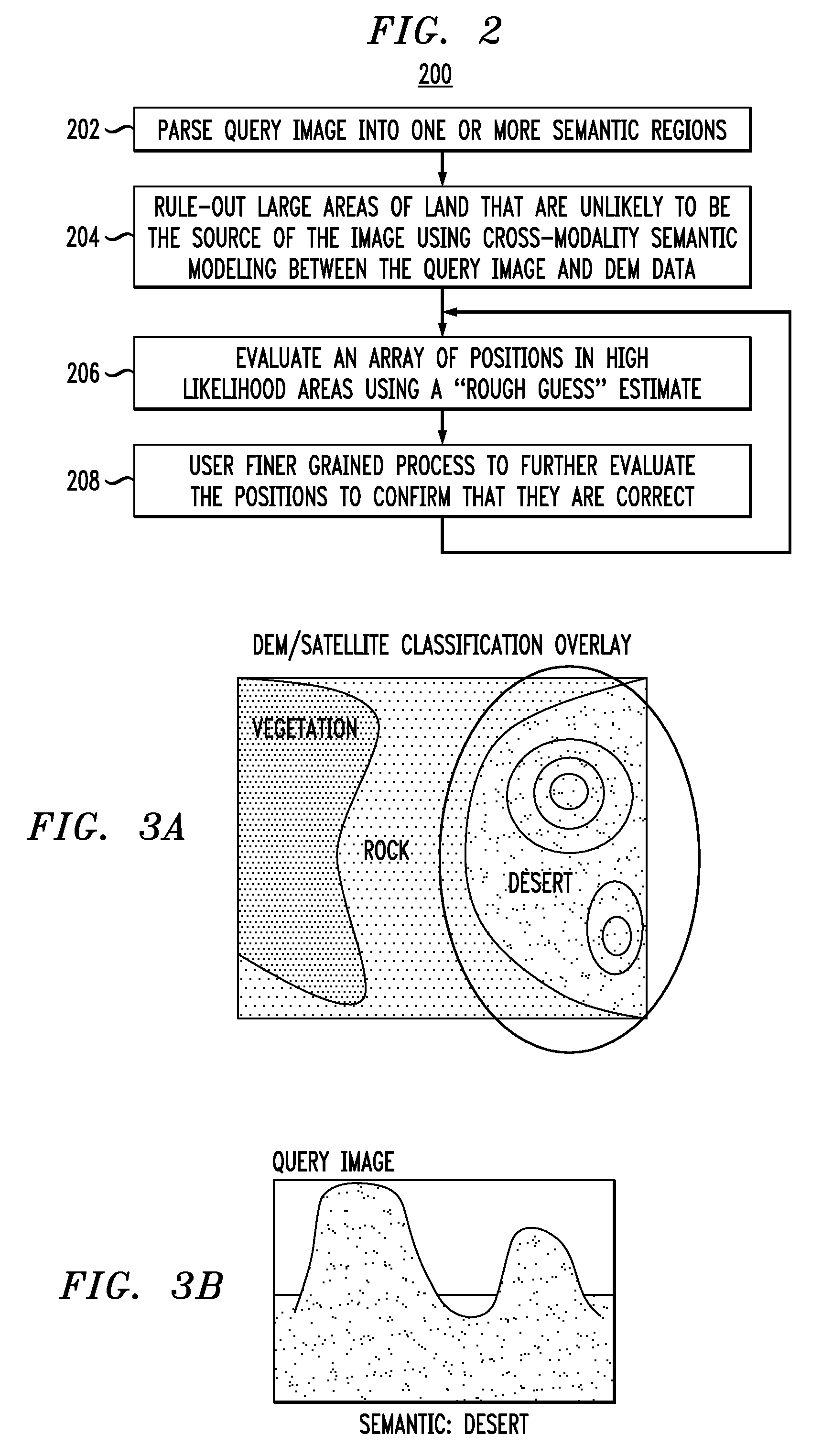Techniques for ground-level photo geolocation using digital elevation
a technology of digital elevation and ground-level photo, applied in the field of data analysis and mining, can solve the problems of ineffectiveness and inability to solve the geolocation problem by technology
- Summary
- Abstract
- Description
- Claims
- Application Information
AI Technical Summary
Problems solved by technology
Method used
Image
Examples
Embodiment Construction
[0019]Digital elevation maps (DEMs) are an essential resource for geolocating images that have been acquired in remote regions where few distinguishing characteristics present themselves. In ground-level imagery, DEM data corresponds to the ridges and valleys in the terrain. These features are robust against illumination and seasonal changes, which makes them temporally independent: an ideal characteristic for most geolocating features, especially in remote regions. Efficiently matching ground-level photos to DEM data, however, remains an open research problem. F. Stein et al., “Map-Based Localization Using the Panoramic Horizon,” IEEE Transactions on Robotics and Automation, vol. 11, no. 6, pgs. 892-896 (December 1995) (hereinafter “Stein”), the contents of which are incorporated by reference herein, proposes a system which is able to localize a panoramic horizon against a DEM in approximately a minute. Stein presented only one example of localization, and their map region was only...
PUM
 Login to View More
Login to View More Abstract
Description
Claims
Application Information
 Login to View More
Login to View More - R&D
- Intellectual Property
- Life Sciences
- Materials
- Tech Scout
- Unparalleled Data Quality
- Higher Quality Content
- 60% Fewer Hallucinations
Browse by: Latest US Patents, China's latest patents, Technical Efficacy Thesaurus, Application Domain, Technology Topic, Popular Technical Reports.
© 2025 PatSnap. All rights reserved.Legal|Privacy policy|Modern Slavery Act Transparency Statement|Sitemap|About US| Contact US: help@patsnap.com



